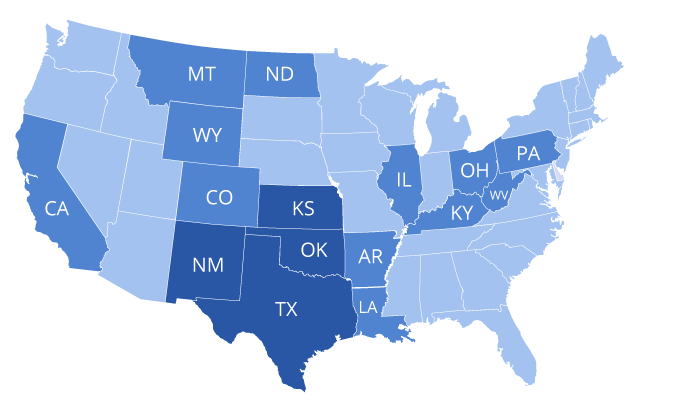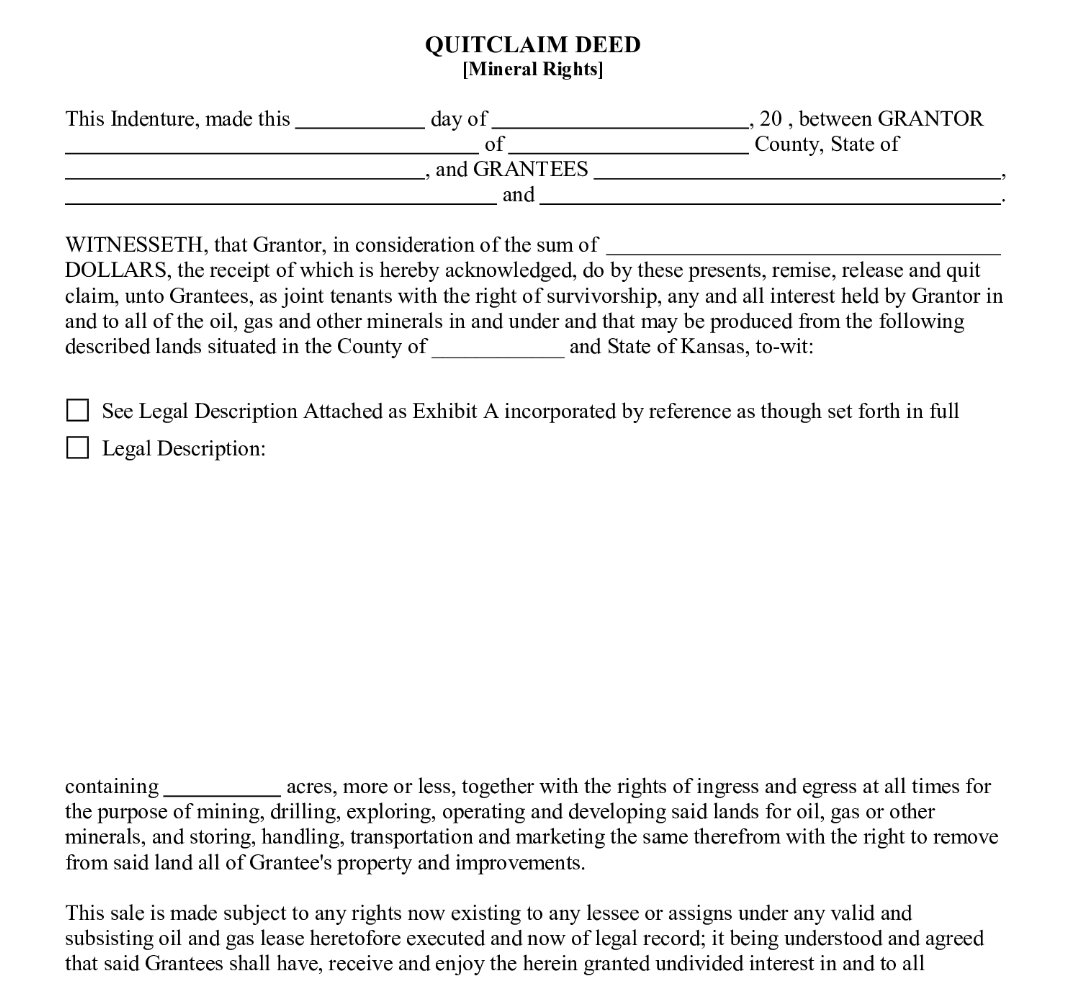Finding Unclaimed Oil and Gas Royalties
Learn how to find unclaimed oil and gas royalties
Request an Offer:
Unclaimed Mineral Royalties
When a mineral owner cannot be paid for a period of 1-5 years, the operator can escheat (turn over) the funds to the state, where they will become Unclaimed Property. There are millions of dollars of unclaimed royalties just waiting for their rightful owner to file a claim. You can file a claim on unclaimed royalties (also called production payments) in your name or the names of those from whom you have inherited property.
Where to Search
To find unclaimed royalties, we recommend searching the following states:
National Database
We recommend searching the national unclaimed property database, MissingMoney.com. Not all states participate, though.
State Where Minerals are Located
Search for unclaimed royalties in the state where the mineral rights are located.
State Where Last Known Mineral Owner Resided
Check the unclaimed property records in the state where the mineral owner resides (or their last known address).
State Where Operator is Located (or Incorporated)
Search for unclaimed property in the state where the oil and gas operator is located (or incorporated).
Delaware
Always check for unclaimed royalties in Delaware, where many companies are incorporated. Delaware does not participate in the national database, MissingMoney.com, so you will have to check separately.
Where to Find Unclaimed Royalties and Production Payments
We recommend searching for unclaimed royalties in the national database, the state where the minerals are located, the state where you reside, the state where the operator’s headquarters are located, and Delaware (because many companies are incorporated in Delaware). The following table contains links where you can search for unclaimed royalties in each of the top oil and gas producing states.
How Royalties End Up as Unclaimed Property
Oil and gas production payments and royalties end up in unclaimed property for a variety of reasons. Usually, it is because the operator cannot locate or otherwise disburse funds to the royalty owner.
Here are some common reasons royalties are escheated to the state as unclaimed property:
- Cannot locate the mineral owner
- Outdated address
- The mineral owner passed away
- Division orders were never signed
- Title issue (either a defect or cloud in the title)
- Pending lawsuit
- And more

Unclaimed Oil and Gas Royalty Examples
Each state has its own method of displaying unclaimed properties. Some list only the name and address of the person, while others give additional information such as the payor, type of property, and dollar amount.
Often, when searching for mineral rights, you have to be familiar with oil and gas companies as they may be the only indicator that a specific unclaimed property is an oil or gas production payment.
These examples will help you identify which properties are related to oil and gas royalties and production payments.
Who Can File a Claim?
You can claim unclaimed property of all types if you are the rightful owner of the property or if you have inherited property from the rightful owner. The state will require evidence that you are who you say you are and that you have the right to claim the property. If you are claiming property from someone you inherited property from, you may have to show evidence of inheritance or complete an Affidavit of Heirship (AOH).
States are actively trying to avoid identity theft and fraud, so the burden of proof can be high.
Unclaimed property can be a great way to discover mineral rights that have been “lost” over the years. When mineral rights are not produced, they can easily be overlooked when one owner dies, and the ownership is transferred to the heirs. Unclaimed property is a great way to locate mineral rights that you (or your family) were previously unaware of.

What To Do After Claiming Long-Lost Mineral Rights
After successfully claiming unpaid royalties, check to see if you are in pay status for these minerals. Are you getting checks for the same wells (they might be operated by a different operator by now)?
If you are not receiving checks for producing wells, you may need to contact the current operator and ask them what is needed to get into “pay status.” Often, the mineral rights are titled to a previous owner (perhaps your parent, grandparent, or another family member). Curing the title might be as simple as legally transferring the mineral rights from the previous owner to the heirs.
Why Sell?
Why People Sell Their Mineral Rights
I am putting my affairs in order. I don’t want to burden my kids with the hassle of transferring ownership and managing small mineral rights. When my sister passed away, my niece and nephew had to hire an attorney to help them with the minerals. I don’t want my kids to go through that.
I inherited my mineral rights so they were sentimental, but I don’t really want to bother with managing them and filing extra tax returns. I decided to sell and use the money as a down payment on my house.
I had no idea how fast the oil production would decline. My checks are only 20% of what they were a few years ago. I should have sold my mineral rights when the wells were brand new and still generating huge royalties.
My oil wells have been producing for decades and the reserves are almost depleted. Once the wells are plugged, the value will be significantly lower. I’d rather cash out now.
I inherited mineral rights, but don’t want to be involved with fracking and fossil fuels. I would prefer to support renewable energy and do my part to reverse climate change.

